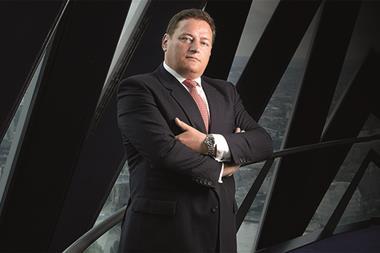For an industry rooted in the traditional and the physical - personal connections and spaces - the notion of fundamental change is not without challenge. And the role of the property consultant in this should not be underestimated.

In order to be successful through change, property consultants must perform a variety of roles: they must gain the support of their firms in accepting that change is coming, engage with clients to demonstrate the implications of these changes to their businesses and build a vision for the future with a clear implementation plan that clients will buy into.
However, in order to succeed consultants will not only need to adapt but also ensure their clients join them on their transformational journeys. Such is the speed of change that consultants need to be honest with themselves about where their real value lies.
The key to success will be in establishing what they can offer that a well-designed process, processor or database cannot - and how they can make their clients willing to pay for it. In other words, simply being able to talk to clients fluently about the headline office rent in Bristol, say, (given they will already know this from a quick Google search) isn’t going to cut it any more.
What clients cannot so easily find online is what big thematic shifts in real estate are happening now, what is over the horizon and how they should be planning if they want to thrive.
Of course our clients will want to know what the headline rent is in Bristol, but the real value a consultant can offer is to demonstrate the future of the asset, its role in the Bristol economy and how to apply this to the client’s strategy.
It’s a service business
Naturally, this will also require advisers to talk to clients about new technologies and the implications of tools such as big data using simple language and real-world examples.
As a guide, driving business through two parts good service and one part data-driven analytics bespoke to a client will probably prove the most effective approach.
As Herb Kelleher, co-founder of Southwest Airlines, famously told his employees: “We’re in the service business and it’s incidental that we fly aircraft.” Replace the last two words of that quote with “deal in property” and the same is true of our industry.
What clients cannot so easily find online is what big thematic shifts in real estate are happening now, what is over the horizon and how they should be planning if they want to thrive
Finally, there is also a need to be curious and look beyond the traditional confines of our industry, as both opportunities and threats from tech to current business models are likely to first manifest themselves in other sectors. Clients rightfully expect their consultants to be proactive rather than reactive and word will soon spread about those failing to make the grade.
Such is the rate of change that demographics and technology are bringing to the property sector that it might seem rather daunting. But only those willing to take risks and embrace the challenge will thrive - or, indeed, survive.
We take this very seriously at Cushman & Wakefield. This year is our 100-year anniversary, and we’re mindful of what we need to do to last a further hundred years.
We’ve invested in new roles, such as my own, which concerns the transformation of our business to ensure it is set up for modern challenges. We have also invested in initiatives such as our Futures programme, which is about engaging with clients on the challenges they face as the industry changes.
So, although change can be daunting, we’re quietly confident that we are in a good place to react.






























No comments yet